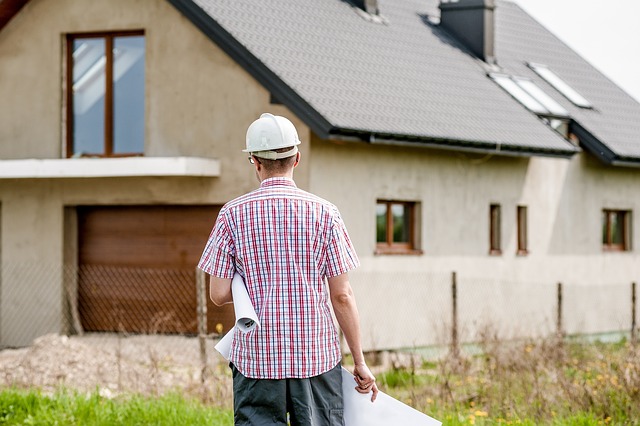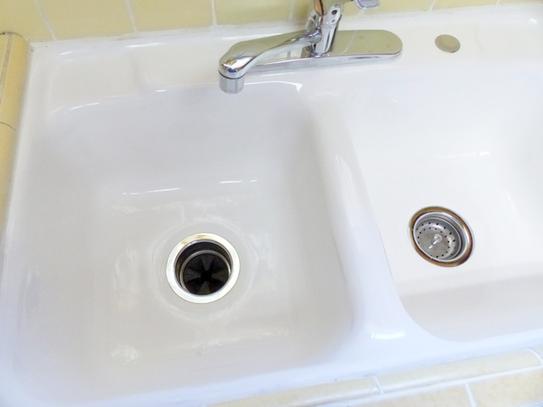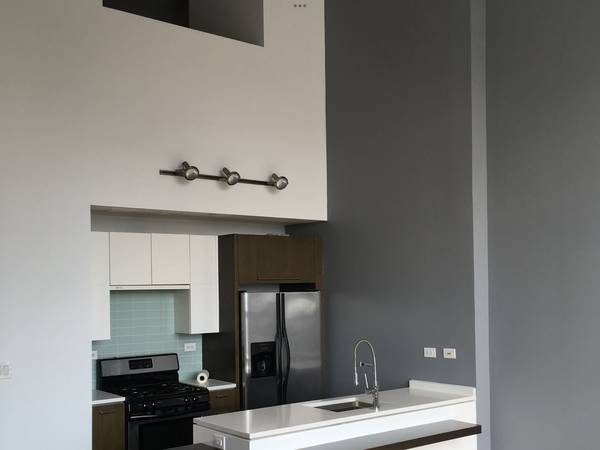Table of Contents
Understanding the Concept of a Fixer-Upper Home
A fixer-upper home is a property that is in need of varying degrees of repair or renovation. These homes are often priced lower than other properties in the market to compensate for the required investment of time and money to bring them up to a desirable condition. Fixer-uppers can range from minor cosmetic updates to major structural renovations, depending on the property’s condition and the buyer’s desired outcome. The term “fixer-upper” can also be used to describe homes that have potential but may require a buyer’s vision and expertise to maximize their value.
Understanding the concept of a fixer-upper home is essential before embarking on the journey of purchasing and renovating one. It is crucial to have a clear understanding of the work involved, the associated costs, and the potential benefits. Buyers considering fixer-uppers should carefully assess their own skills, resources, and available time to determine if they are up for the task. While these properties can offer an opportunity for customization and increased equity, they also come with risks and challenges that need to be carefully considered. Taking the time to educate oneself about fixer-uppers and their unique characteristics is an important step towards making an informed decision and finding the right fit for your real estate goals.
• A fixer-upper home is a property that requires varying degrees of repair or renovation.
• These homes are often priced lower than other properties in the market to compensate for the required investment of time and money.
• Fixer-uppers can range from minor cosmetic updates to major structural renovations.
• The term “fixer-upper” can also describe homes with potential but may require a buyer’s vision and expertise to maximize their value.
Before purchasing and renovating a fixer-upper home, it is important to understand the concept fully. This includes considering the work involved, associated costs, and potential benefits. Some key points to keep in mind include:
• Assessing personal skills, resources, and available time: Buyers should carefully evaluate whether they have the necessary skills or access to professionals who can handle the repairs or renovations needed. They should also consider if they have enough financial resources and available time to commit to this project.
• Customization opportunities: One advantage of fixer-uppers is that buyers have the opportunity to customize their home according to their preferences. This allows for greater control over design choices and creating a space tailored specifically for their needs.
• Increased equity potential: By investing in a fixer-upper property at a lower price point, there is an opportunity for increased equity once renovations are complete. Improving the condition of the home can lead to higher resale values or rental income.
However, it is crucial not only to focus on these advantages but also be aware of some challenges that come with buying a fixer-upper:
• Hidden issues: Fixer-uppers may have hidden problems beyond what meets the eye during initial inspections. It’s important for buyers either personally inspect or hire professionals who can thoroughly assess any potential issues such as plumbing, electrical systems, foundation problems, etc., before making a purchase decision.
• Financial considerations: Renovations involve additional costs beyond just purchasing the property itself. Buyers need sufficient funds set aside to cover the cost of materials, labor, permits, and unexpected expenses that may arise during the renovation process.
• Time commitment: Renovating a fixer-upper can be time-consuming. Buyers should consider whether they have the available time to oversee or manage the renovations themselves or if they need to hire professionals who will require their own timeline.
In conclusion, understanding the concept of a fixer-upper home is crucial before embarking on this type of real estate venture. It requires careful assessment of personal skills, resources, and available time. While there are potential benefits such as customization opportunities and increased equity potential, buyers must also be aware of hidden issues and additional financial considerations. By educating oneself about these unique characteristics associated with fixer-uppers, one can make an informed decision that aligns with their real estate goals.
Assessing Your Budget and Financial Readiness
Assessing your budget and financial readiness is a crucial step before embarking on the journey of purchasing a fixer-upper home. It requires a thorough examination of your current financial situation and a realistic evaluation of your ability to take on the financial responsibilities that come with renovating a property.
The first thing you need to do is analyze your income and expenses to determine how much you can comfortably allocate towards a fixer-upper project. Consider factors such as your monthly mortgage or rent payments, utility bills, groceries, transportation costs, and any outstanding debts. It’s important to have a clear understanding of your financial obligations, as this will give you an idea of how much you can allocate towards the purchase and renovation of a fixer-upper home.
Next, take a close look at your savings and determine how much you can afford to put towards a down payment and renovation costs. Keep in mind that fixer-upper homes often require extensive repairs and updates, so you’ll need to have enough funds set aside to cover these expenses. It may also be worth exploring financing options that can help cover the purchase price and renovation costs, such as renovation loans or home equity lines of credit. Overall, assessing your budget and financial readiness is an essential step in the process of buying and renovating a fixer-upper home, ensuring that you make a financially sound decision.
Researching and Identifying Potential Fixer-Upper Properties
When researching and identifying potential fixer-upper properties, it is crucial to start with a clear understanding of your personal goals and preferences. Begin by determining your desired location, as well as the type and size of the property you are interested in. Consider factors such as proximity to amenities, schools, and public transportation, as well as the potential for future growth in the area. Additionally, take into account your own level of comfort with the renovation process and the scope of work you are willing to undertake.
Once you have a clear idea of your needs and preferences, it is time to utilize various resources to search for potential fixer-upper properties. Real estate websites and listing services can be valuable tools to find properties that match your criteria. However, it is also important to consider more traditional methods such as networking with local real estate agents and attending open houses. By casting a wide net and exploring multiple avenues, you increase your chances of finding the perfect fixer-upper property that aligns with your vision and budget.
Evaluating the Structural Integrity of a Fixer-Upper Home
When considering the purchase of a fixer-upper home, it is crucial to evaluate the structural integrity of the property. This assessment will help you determine the extent of repairs needed, as well as the overall safety and stability of the house. One essential keyword to focus on during this evaluation process is “foundation.” Be sure to inspect the foundation thoroughly for any signs of cracks, settling, or unevenness. A strong and stable foundation is vital for the long-term durability and value of a fixer-upper home. Additionally, check for any structural issues such as sagging floors, sloping walls, or major structural damage that may require professional attention. Assessing the structural integrity of the property will give you a clear understanding of the scope of work and potential costs involved in the renovation process.
Another essential keyword to consider when evaluating the structural integrity of a fixer-upper home is “roof.” Inspecting the roof is crucial to ensuring the overall stability and protection of the property. Look for signs of damage, such as missing shingles, water leaks, or sagging sections. It is also important to assess the age and condition of the roof to determine if it needs repair or replacement. Additionally, check for any signs of water damage or leaks in the ceiling or attic, as these can indicate potential issues with the roof. Evaluating the roof’s structural integrity is crucial, as it directly affects the home’s ability to withstand weather conditions and protect its occupants and belongings. Taking the time to thoroughly assess these key elements of a fixer-upper home will help you make an informed decision and plan for the necessary repairs and renovations.
Estimating Renovation Costs and Creating a Realistic Budget
When it comes to a fixer-upper home, estimating renovation costs and creating a realistic budget are crucial steps in the preparation process. Understanding the scope of the renovations and their associated expenses is essential to avoid any financial surprises along the way.
To begin, it is important to thoroughly assess the condition of the property and identify all the necessary repairs and upgrades. This includes inspecting the structural elements, electrical and plumbing systems, as well as any cosmetic improvements that may be required. By evaluating these aspects, homeowners can get a better understanding of the potential costs involved. Additionally, it is advisable to consult with contractors, specialists, and industry professionals to get accurate estimates for each renovation task. Taking the time to research and gather multiple quotes will help in creating a more comprehensive and realistic budget for the project.
Hiring a Professional Home Inspector for a Thorough Assessment
When considering purchasing a fixer-upper property, it is crucial to hire a professional home inspector for a thorough assessment. A professional home inspector possesses the necessary expertise to identify both visible and hidden issues within the property. From assessing the electrical and plumbing systems to examining the foundation and structural integrity, their keen eye can help unveil potential problems that may require significant repairs. Moreover, a home inspector can also identify any code violations or safety hazards that need to be addressed before proceeding with the renovation process. By investing in a home inspection, potential buyers can avoid costly surprises down the line and make informed decisions about the property’s value and feasibility.
During the process of hiring a professional home inspector, it is advisable to be diligent in your selection. Look for inspectors who are licensed, qualified, and have a solid reputation in the industry. It is crucial to choose an inspector who is impartial and has no conflicts of interest, ensuring that their assessment is unbiased. Additionally, consider requesting samples of their inspection reports to get an idea of their thoroughness and attention to detail. By investing time and effort into finding the right professional home inspector, buyers can gain peace of mind and confidence in their decision-making process when it comes to purchasing and renovating a fixer-upper home.
Navigating the Loan Options for Financing a Fixer-Upper Purchase
When it comes to financing a fixer-upper purchase, there are several loan options available for potential homeowners to consider. One common choice is a renovation loan, which combines the cost of the home purchase and the renovations into a single mortgage. These loans are often backed by the Federal Housing Administration (FHA), making them a popular choice for first-time homebuyers. Another option is a home equity loan, which allows homeowners to borrow against the equity they have built up in their current property. This type of loan can be advantageous for those who already own a home and are looking to finance a fixer-upper purchase.
In addition to renovation loans and home equity loans, there are also traditional mortgage loans that can be used to finance a fixer-upper purchase. These loans typically require a higher down payment and may have stricter qualifying requirements compared to renovation loans. However, they offer the advantage of potentially lower interest rates and more flexible repayment terms. It is essential to thoroughly research and consider the various loan options available to determine which is the best fit for your specific financial situation and goals. Additionally, consulting with a financial advisor or mortgage lender can provide valuable guidance in navigating the loan options for financing a fixer-upper purchase.
Negotiating the Purchase Price and Terms with the Seller
Determining the right purchase price and negotiating favorable terms with the seller is a crucial step in the process of buying a fixer-upper home. It is important to conduct thorough research and gather information about the current market value of similar properties in the area. This will give you a solid baseline from which to start negotiations. Considering the extent of renovations needed and the associated costs, it is advisable to aim for a purchase price that allows for some room in your budget. By carefully assessing the condition of the property and understanding the estimated renovation expenses, you can determine the maximum price you are willing to pay. Additionally, it is essential to have a clear understanding of the terms of the sale, such as the timeline for closing, any contingencies, or special conditions that may impact the negotiation process. Effective communication and a willingness to compromise can create a win-win situation for both parties involved in the transaction.
Assembling a Reliable Team of Contractors and Specialists
When taking on a fixer-upper project, it is crucial to assemble a reliable team of contractors and specialists to ensure a smooth and successful renovation process. One of the key aspects to consider when assembling your team is the specific expertise and experience each professional brings to the table. For example, you might need a general contractor who can oversee the entire project and coordinate the work of subcontractors such as electricians, plumbers, and carpenters. It is also essential to find specialists who are skilled in specific areas of renovation, such as flooring, roofing, or interior design. By selecting a team with diverse skills and knowledge, you can be confident that every aspect of your project will be handled with the utmost professionalism and attention to detail.
Additionally, when assembling your team of contractors and specialists, communication and collaboration are key. Building a strong working relationship with each member of your team is crucial to ensure that everyone is on the same page and working towards a common goal. Effective communication can help prevent misunderstandings, delays, and costly mistakes. Regular meetings and open lines of communication will allow you to address any concerns, make necessary adjustments, and keep the project moving forward smoothly. Remember, a well-coordinated and cohesive team will not only save you time and money but also ensure that your fixer-upper dream becomes a reality.
Managing the Renovation Process: Tips and Best Practices
Once you have purchased a fixer-upper property and are ready to embark on the renovation process, it is important to keep in mind a few key tips and best practices. Firstly, communication is key. Ensure that you maintain open and clear lines of communication with your team of contractors and specialists. Regularly update them on your vision for the project and any changes or concerns that may arise. This will help prevent any misunderstandings or delays and keep the renovation process running smoothly.
Secondly, it is crucial to have a detailed project plan in place. This plan should outline each step of the renovation process, from start to finish, and include a timeline for completion. By mapping out the project in this way, you can ensure that everything stays on track and avoid any unnecessary delays or setbacks. Additionally, be sure to set realistic goals and expectations for each stage of the renovation. Remember that things may not always go as planned, so it is important to be flexible and adaptable along the way. With proper communication, planning, and a willingness to adapt, you can effectively manage the renovation process and achieve the desired results for your fixer-upper home.
What is a fixer-upper home?
A fixer-upper home is a property that requires significant repairs or renovations before it can be considered livable or marketable.
How do I assess my budget and financial readiness for a renovation project?
To assess your budget and financial readiness, calculate your total available funds, consider your borrowing options, and evaluate your ability to handle unexpected costs.
How can I research and identify potential fixer-upper properties?
Researching and identifying potential fixer-upper properties can be done through online real estate listings, contacting local real estate agents, attending property auctions, or driving around targeted neighborhoods.
How do I evaluate the structural integrity of a fixer-upper home?
Evaluating the structural integrity of a fixer-upper home requires hiring a professional home inspector who will thoroughly examine the property for any structural issues, such as foundation problems or water damage.
How can I estimate renovation costs and create a realistic budget?
Estimating renovation costs involves obtaining quotes from contractors, researching material costs, and considering any additional expenses such as permits or design fees. With this information, you can create a realistic budget.
Should I hire a professional home inspector before purchasing a fixer-upper?
Yes, it is highly recommended to hire a professional home inspector before purchasing a fixer-upper. They will provide a detailed assessment of the property’s condition, helping you make an informed decision.
What loan options are available for financing a fixer-upper purchase?
Loan options for financing a fixer-upper purchase include conventional renovation loans, FHA 203(k) loans, and home equity loans or lines of credit.
How can I negotiate the purchase price and terms with the seller of a fixer-upper?
Negotiating the purchase price and terms with the seller requires thorough market research, understanding the property’s condition, and being prepared to justify your offer based on the necessary repairs or renovations.
What factors should I consider when assembling a team of contractors and specialists?
When assembling a team of contractors and specialists, consider their experience, reputation, licenses, insurance coverage, previous work samples, and references from past clients.
What are some tips and best practices for managing the renovation process?
Some tips and best practices for managing the renovation process include creating a detailed project plan, establishing clear communication with your contractors, regularly monitoring progress, and being prepared for unexpected delays or additional costs.



